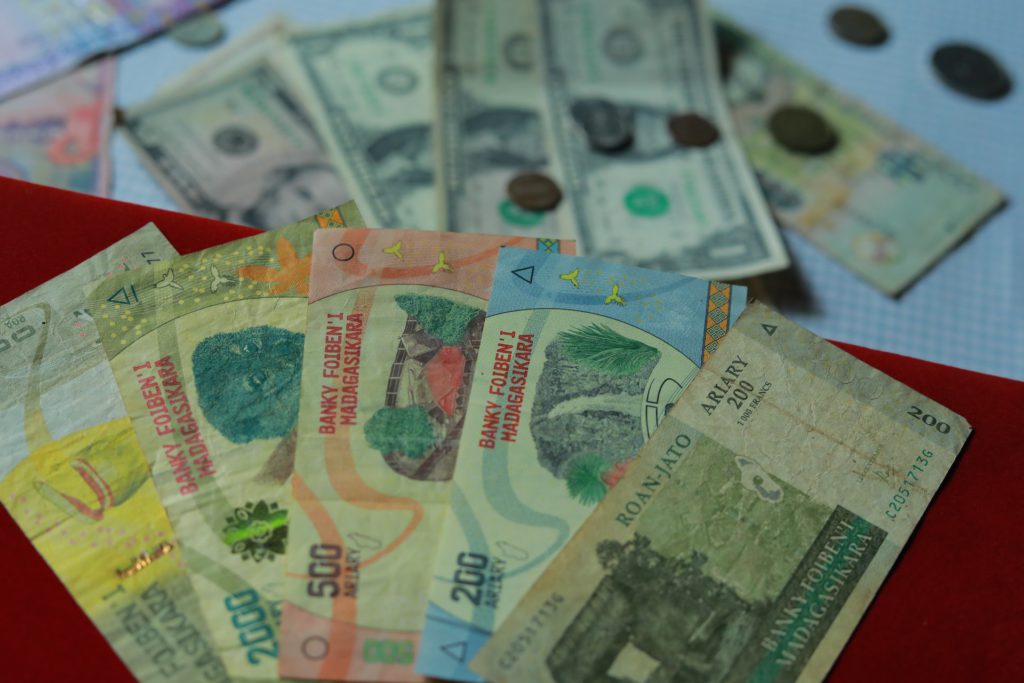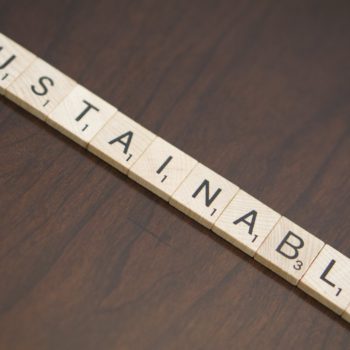|
|
Buying brands and products with the fairtrade certified seal means the item has undergone a rigorous certification process. Fairtrade certification ensures that the product has been sourced from producers who prioritize fair wages, safe working conditions, and sustainable supply chains. This article will explore the ins and outs of the fair trade certification process and the benefits of choosing fair trade-certified products.
What is Fair Trade Certification?
Understanding the Certification Process
Producers and companies need to meet specific criteria established by fair trade organizations to become certified by fair trade. These criteria encompass the production process’s social, economic, and environmental aspects. The certification process involves an assessment of the entire supply chain to ensure that everyone involved is treated fairly and ethically.
The Fair Trade movement originated in the 1950s when European and US observers noticed struggling farmers in developing countries. In the 1990s, Paul Rice, the founder of Fair Trade USA, established standards for Fair Trade after working with coffee farmers in Nicaragua.
This led to the creation of Fair Trade Certification. Today, Fair Trade, a significant non-profit with around 130 employees, sets trade standards, certifies and labels vetted products to support sustainable livelihoods for farmers and workers while safeguarding the environment. With consumer awareness for Fair Trade-certified products reaching 63%, double the 2008 figure, the movement is poised for further growth.
Benefits of Fair Trade Certification
One of the main benefits of fair trade certification is that it ensures that farmers and workers receive fair wages for their labor. This allows them to improve their livelihoods and invest in their communities. Additionally, fair trade certification promotes safe working conditions, ensuring that workers are not exposed to hazardous environments. Moreover, fairtrade standards certification encourages sustainable farming practices, protecting the environment and preserving natural resources.
Fair Trade Premium: A Key Component
In addition to fair wages, fair trade certification also includes a fair trade premium. This premium is an additional sum paid on top of the purchase price directly to the producers and workers. It invests in community development projects, such as schools, healthcare facilities, or clean water initiatives. The fair trade premium empowers producers and communities to improve their quality of life and create a more sustainable future.
How to Become Fair Trade Certified?
Steps to Get Fair Trade Certification
Becoming fair trade certified involves several steps:
1. Research fair trade organizations: Look for reputable organizations such as Fairtrade International or Fair Trade USA that offer appropriate trade certification.
2. Contact the fair trade organization: Contact the fair trade organization to express your interest in becoming fair trade certified. They will guide you through the certification process.
3. Understand fair trade standards: Familiarize yourself with the fair trade standards set by the organization. These standards often include fair wages, safe working conditions, environmental sustainability, and community development.
4. Assess compliance: The fair trade organization will assess your current practices and operations to determine if they comply with fair trade standards. This may involve reviewing your supply chain, labor practices, environmental impact, etc.
5. Make necessary improvements: If any aspects of your business do not meet the fair trade standards, you must make changes to become compliant. This may involve adjusting wages, improving working conditions, or adopting more sustainable practices.
6. Conduct onsite audits: The fair trade organization will conduct onsite audits to verify that you have implemented the required changes and comply with the fair trade standards. Third-party inspectors may conduct these audits to ensure objectivity.
7. Receive fair trade certification: If your business meets all the fair trade standards and passes the audits, you will be granted fair trade certification. This certification allows you to use the fair trade certified seal on your products, indicating to consumers that fair trade principles produced your goods.
8. Maintain certification: Once certified, you must ensure ongoing compliance with fair trade standards. This may involve regular audits, submitting documentation and reports, and upholding fair trade practices throughout your business operations.
It is important to note that the specific process and requirements for fair trade certification may vary depending on the organization and region.
Therefore, it is recommended to directly contact the fair trade organization of your choice for detailed instructions and guidance.
Working Conditions and Fair Wages
One of the critical aspects evaluated during the certification process is the working conditions of the producers and workers. This includes factors such as fair wages, reasonable working hours, and access to collective bargaining. Fair trade certification ensures that workers are treated with dignity and respect, providing a safe and supportive working environment.

The Role of Audits in Certification
Audits play a crucial role in fair trade certification. Independent third-party organizations conduct them to verify compliance with fair trade standards. Audits assess the entire supply chain, from sourcing raw materials to the final product. These thorough inspections help guarantee that the fair trade certified products meet the highest ethical and environmental standards.
Why Choose Fair Trade Certified Products?
Ensuring Sustainable and Ethical Supply Chains
Consumers can contribute to developing sustainable and ethical supply chains by choosing fair trade-certified products. Fair trade certification guarantees that the production process respects people and the planet. It promotes environmentally friendly practices and reduces the negative impact on ecosystems.
Supporting Fair Trade Farmers and Workers
When you buy fair trade-certified products, you directly support fair trade farmers and workers. Your purchase helps them earn a fair income, provide for their families, and improve their living conditions. By supporting fair trade, you actively contribute to the empowerment of these communities and their ability to create positive change.
Fair Prices for Producers and Consumers
One of the core principles of fair trade is guaranteeing a fair price for producers. Fair trade certification ensures that farmers and workers receive a fair share of the final product’s value. By eliminating intermediaries and implementing transparent pricing policies, fair trade creates a more equitable distribution of profits. As a consumer, you can enjoy fair trade products knowing that your purchase positively impacts the lives of producers.
Understanding the Fair Trade Movement
The Importance of Fair Trade Standards
Fair trade standards are crucial for ensuring the integrity and impact of fair trade certification. These standards cover various aspects, including fair wages, working conditions, environmental sustainability, and community investment. Fair trade organizations strive to create a more just and sustainable global trade system by adhering to these standards.
Collaboration with Fair Trade Organizations
Fair trade organizations, such as Fairtrade International and Fair Trade Federation, play a vital role in the fair trade movement. They work closely with producers, companies, and consumers to promote fair trade practices and raise awareness about its benefits. These organizations provide guidance, support, and oversight to uphold fair trade standards throughout the certification process.
Promoting Safe Working Conditions
One of the key objectives of the fair trade movement is to promote safe and healthy working conditions. Fair trade certification requires producers to comply with strict health and safety regulations, protecting workers from potential hazards. By prioritizing the well-being of workers, fair trade contributes to a more sustainable and socially responsible economy.

Certification Works: The Role of Fairtrade International
Collaboration with Fair Trade Federations
Fairtrade International collaborates with Fair Trade Federations worldwide to ensure the proper implementation and enforcement of fair trade standards. These collaborations help strengthen the impact of fair trade initiatives and create a global network of producers, organizations, and consumers committed to fair trade principles.
The Rigorous Certification Process
The fair trade certification process is known for its rigor and thoroughness. It includes comprehensive audits, inspections, and continuous monitoring to ensure ongoing compliance with fair trade standards. This strict certification process guarantees that fair trade-certified products meet the highest social and environmental criteria.
Flocert: A Trusted Certification Body
Flocert is a leading certification body that specializes in fair trade certification. Flocert conducts audits and assessments to verify compliance with fair trade standards as an independent organization. Their accreditation adds credibility and transparency to the fair trade certification process, ensuring that consumers can trust the authenticity of fair trade certified products.
In conclusion, fair trade certification is an important process that ensures the ethical production of goods and supports sustainable supply chains. Consumers play a crucial role in promoting fairness and social responsibility by choosing fair trade certified products.
Fair trade certification empowers producers and workers, protects the environment, and promotes global economic justice. So, whenever possible, opt for fair trade certified products and join the movement for a more equitable world.
Frequently Asked Questions
Fair trade certification is a process where a product or business is audited and certified by a third-party organization to ensure that it meets specific social, environmental, and economic standards. This certification guarantees that the product or business adheres to fair trade principles and practices.
Fair trade certification brings numerous benefits. It ensures that producers receive fair wages and fair working conditions, promotes sustainable livelihoods, supports community development initiatives, and safeguards the environment. For consumers, fair trade certification provides ethical and sustainable choices and the ability to help producers in developing countries.
The fair trade certification process involves several steps. First, the producer or business applies for certification. Then, an auditor assesses to determine if they meet the fair trade standards. If they pass the assessment, they receive certification and can carry the fair trade label on their products.
Various products can be eligible for fair trade certification, including coffee, tea, cocoa, sugar, fruits, vegetables, nuts, spices, handicrafts, and home goods. The certification extends to both agricultural and non-agricultural products.
Fair trade coffee is coffee produced and traded according to fair trade standards. This means coffee farmers receive fair prices for their products, have better working conditions, and follow sustainable agricultural practices.
Fair trade premium is an additional sum of money paid to producers or communities for fair trade certified products. This premium is used for community development projects, such as building schools, improving infrastructure, or investing in healthcare initiatives.
Fairtrade ensures fair wages by setting a minimum price for certified products. This price is often higher than the market price to cover sustainable production costs. Fair trade certification also prohibits using forced labor and child labor.
To become fair trade certified, a business must follow the standards and meet the certification requirements. This involves undergoing an audit by a fair trade certification organization. If the business complies with the standards, it will receive fair trade certification.
The fair trade certification program ensures that producers and businesses adhere to fair trade principles and practices. It sets standards, carries out audits, grants certifications, and promotes fair trade products to consumers. The program plays a crucial role in creating equitable trade relationships.
Fair trade certification helps producers in developing countries by providing them with fair product prices, ensuring fair working conditions, and supporting community development projects. It helps empower small-scale farmers and artisans to improve their livelihoods and access international markets.
Consumers can support fair trade by choosing and purchasing fair trade-certified products. By buying fair trade, consumers contribute to a more equitable trade model and help improve the lives of producers in developing countries.
Takeaway
In conclusion, embracing fair trade-certified products signifies your commitment to ethical consumption. This certification process entails rigorous evaluation to ensure equitable wages, safe working conditions, and sustainable supply chains. By selecting fair trade, you advocate for producers’ well-being, environmental protection, and economic justice.
With the seal of fair trade certification, you contribute to a more balanced global trade system and the empowerment of communities. Whenever you opt for fair trade, you make a positive impact, supporting fairness, sustainability, and social responsibility in a world that deserves a fair chance for all. Explore the world of fair trade and be a catalyst for change.












